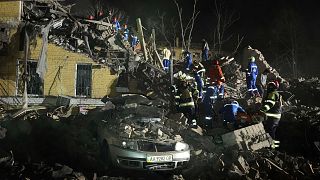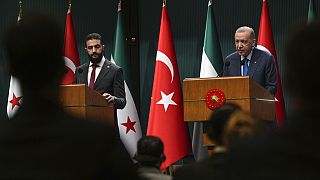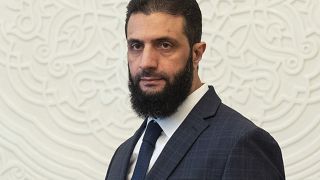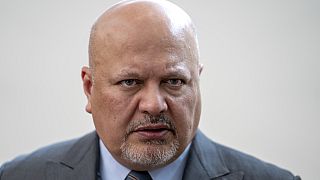Syria
At Harim General hospital in Syria, each clinic is open only once a week as funding has stopped and many of the departments have shut down.
The hospital which serves around 300,000 people, the majority of whom live in displacement camps, is at risk of closing.
By May, just 6% of the United Nations’ appeal for aid to Syria in 2024 was funded, leaving millions of people unable to access their most basic needs.
“Unfortunately, since the beginning of 2024 and until now, support has stopped for 31 health facilities, including 14 hospitals. Almost all financial aid has stopped.", Dr. Hussam Mohammed from Idlib Health Authority said.
In May, international donors meeting in Brussels said they will commit 7.5 billion euros ($8.1 billion) in both grants and loans to support Syrians.
U.N. agencies and international aid organizations in recent years have struggled with shrinking budgets, and humanitarian officials have decried the budget cuts that have forced the downsizing of aid programs, despite skyrocketing poverty.
Syria’s civil war, which erupted in 2011, has killed nearly half a million people and displaced half the country’s pre-war population of of 23 million. For several years now, the conflict has remained largely frozen, along with efforts to find a viable political solution to end it.
Meanwhile, millions of Syrians have been pulled into poverty, and struggle with accessing food and health care as the economy deteriorates.
Nearly 160 health facilities, including 46 hospitals, will be forced to suspend operations in June if funding does not increase said the UN in May.
One of those hospitals is Harim General hospital. All of the 100 people who work in the hospital are working on a volunteer basis, and have not been paid in months.
Many of the hospital's machines have been shut down as there is no money to power them. This compounds the suffering of the Syrian population who have struggled since the start of the war.
What is happening at Harem is happening all over northern Syria, said Dr. Hussam Mohammed at the Idlib Health Authority.
"Any health facility stopping its work will have a negative impact on the entire region. The truth is that the real and accurate number of patients affected by the cessation of facilities is more than one million people. 4 million people in northwestern Syria will suffer directly from the danger of this health service interruption," Dr Mohammed said.












Go to video
Nigeria's market doctors bring healthcare directly to traders
Go to video
Nigerian Football Federation guilty of negligence in footballer's death
01:10
World Trade Organization says global trade could slide this year due to tariffs
Go to video
EU foreign ministers discuss Ukraine, Syria and EU-African relations in Luxembourg.
Go to video
At least 14 million children worldwide risk malnutrition, warns UNICEF
Go to video
Instability hits global markets as Trump tariffs kick in